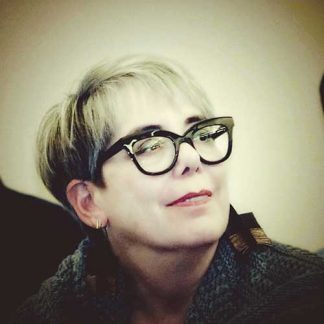By Adria Carpenter
 Leslie Schiff has always loved science and research, but her biggest discovery was her love for teaching.
Leslie Schiff has always loved science and research, but her biggest discovery was her love for teaching.
Schiff is an East Coaster through and through. She grew up in the New York City suburbs, and later traveled up the coast to Providence, Rhode Island, to attend Brown University, where she studied biology.
“I liked biology, but it didn’t take me long in college to realize that I really didn’t want to go to medical school,” Schiff said. “So I gravitated more to research … I think a lot of scientists meander towards their thing, their subject.”
Schiff found her niche in virology, ultimately researching viruses that cause diarrhea and respiratory illnesses in children. She got her PhD in immunology from Tufts University and later went to Harvard Medical School for postdoctoral study in a lab that studied reoviruses.
“Then I got in my car, and I drove halfway across the godforsaken country to come and take my first and my last adult job at the University of Minnesota,” she laughed.
Though she still loves her home state, Minnesota has grown on her. At first, Schiff self-quarantined in her small scientific bubble, but over time, she got more involved with the broader community.
“I developed a love of place, because when you’re stuck in your little silo, you don’t realize how really fabulous and impressive this place is,” Schiff said. “It’s full of amazing, interesting human beings. And that’s faculty, it’s staff, it’s students.”
‘It’s like magic’: The science of teaching
The best part of research was training the undergraduate and graduate students in her lab, and soon her interest in teaching blossomed.
She attended Center for Educational Innovation workshops to improve her pedagogy, and later chaired the campus-wide committee that designed the current liberal education requirements.
“As my career matured, I gravitated into really relishing interactions with undergraduate students here at the University of Minnesota,” she said.
When the university transitioned from quarters to semesters, she volunteered to teach the undergraduate virology course. Most faculty members prefer teaching graduate students, but Schiff loved having undergraduate students in her labs and sought out classroom interactions.
“I get to know every single student in my class. I know them by name, they know me. I let them know me. And so it’s that relationship part that I love,” she said.
Schiff pushes her students to develop their critical thinking skills, to use knowledge in other contexts instead of just memorizing facts. She specifically highlighted the importance of writing fluency and instruction for students in biological sciences.
“People don’t think about it, especially students, but writing is what we do. Writing is part and parcel of being a scientist,” she said. “People don’t think science has a story, but there’s rhetoric of scientific writing.”
As her energies pivoted towards teaching, she decided to combine her twin passions for education and research. With funding for research about how writing promotes critical thinking in STEM disciplines, her classroom became the lab, her courses the experiment.
“That was like magic,” she said. “I could use my own classroom, and the classrooms of my colleagues, as research opportunities.”
Becoming a student again
After 33 years as a professor in the department of microbiology, and over 10 years as associate dean for the university curriculum, Schiff is planning to retire in the next few years. With much of her identity built around academia, it’s a strange feeling to think about leaving.
But she’s excited, and maybe a little anxious, to see what’s next. The top of the list is travel and hiking. She’s also considering taking yoga teaching training, which will give her the opportunity to be a student again.
Another priority is finding more restaurants. Schiff is a fervent foodie. She’ll cook and eat virtually anything, and it’s partly why she admires the Twin Cities. There’s good food on every corner.
But mostly she’s keeping her retirement plans fluid.
“I’m sure that there are things that I can’t quite imagine,” she said. “It’s going to be a big adventure.”
‘Libraries need love’
With countless treasures for students and researchers alike, the library has been Schiff’s lifelong partner.
“On Saturday my mother or father would drive us to the library and allow us to come out with a stack of books. We would go home and read, and then go back the next week,” she reminisced. “Put a bracket around that, rinse and repeat. It was great.”
She sees endless overlap between her educational work and the work of libraries. With a flood of queries and sources on the internet, librarians can help people understand perspective, purpose, bias, relevancy, and more.
“I want to teach students how to think. How to take a few things that they know, and use them in new ways for the future,” she said. “I want to equip them. And libraries and librarians can help do that work too. I think we’re pretty much the same.”
Students and scientists could bring their questions to Google, Bing, or ChatGPT. But librarians have something internet algorithms don’t. Librarians have discernment.
“There is a human who can help interrogate what you’re interested in and what your needs are in a way that the bot can’t,” she said. “We need to celebrate what libraries can do … We need to take care of them, we need to honor them.”
Schiff decided to support that critical work by becoming a board member for the Friends of the Libraries. She’s been a member for a little over a year, first using her institutional connections to help promote events and raise support.
Now she serves on the awards committee. She loves meeting library employees and learning about why they love the library.
“Students now don’t appreciate libraries as much, and I think libraries need love. And I love them because my history includes them,” Schiff said.




